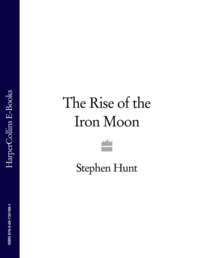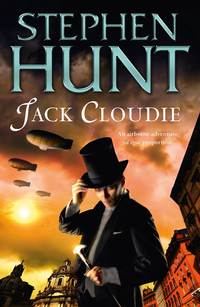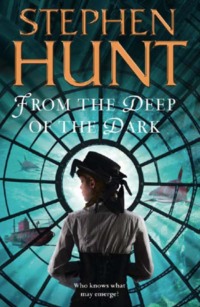
Полная версия
From the Deep of the Dark
It hardly seemed any time at all until a rough shaking jolted him back into the cab’s still interior. William’s face was flushed, but not this time, Dick suspected, from the scouring wind of a long wait and the rude health of the boy’s callow constitution. He’s panicked.
‘Our mark out of the big house already, is he?’
‘No, it’s not that.’ There was a look on Billy-boy’s face that Dick had not seen before. It was alarm mixed with confusion.
‘I went over the wall—’
‘You fool! If you’ve been spotted, if you’ve blown this job for us …’ Dick jumped out of the cab, nearly slipping on the pavement’s ice. As he angrily steadied himself, Dick saw that his stumble had been noted by a bookseller a couple of houses down the street, the hawker’s tray of cheap novels covered with a piece of cloth to protect it against falling snow. The bookseller hurriedly looked away, no doubt not wanting to test the aggressive reputation a hansom cab driver carried. There was something familiar about that face, something—
‘No, I’ve not been seen, it’s what I’ve seen, sarge,’ continued the young officer, speaking so fast he was almost choking on his words. ‘I was hiding in the formal garden when Lady Florence came running out, our mark Carl Redlin and Lord Chant close on her heels. They grabbed her, pushed her down into the snow, and then stabbed her with some kind of blade. Both of them. It only took a minute for Lady Florence to die, then they dragged her body back into the mansion and locked the patio again.’
‘That doesn’t make sense!’ coughed Dick, all vestiges of drowsiness vanishing as he realized what he’d slept through.
His mind reeled. Lady Florence Chant, if he remembered their briefing correctly, was a forgettable society beauty, a clothes-horse, well mannered, without a political bone in her body. She didn’t have access to Parliament. Access to her husband’s guest lists for the boring suppers she was expected to host, perhaps. Royalist rebels didn’t risk capture in the capital to help errant husbands murder their spouses, and certainly not by such an obvious route as stabbing. A fall down the stairs, perhaps. A heart attack induced by a crafty poison, maybe. But cold-blooded murder in a garden, run down like a fox to hounds when any neighbour could be staring out from one of the houses opposite?
‘Sense or not, I saw it. We have to do something!’
‘Not us, lad,’ said Dick. He felt the lines of his greying moustache, as he was wont to do when thinking or nervous. ‘We report it back up through the board. They notify the police. Let the common crushers go in there and stir everything up. If we charge into the big house, we’ll tip off any royalist inside that we’re onto them.’
‘I’ll send for the police now,’ said Billy-boy.
‘What if they arrest our mark? We need to follow him back to his nest of troublemakers, not have him locked up in Bonegate jail waiting for the noose.’
‘Didn’t you hear me, sarge? Our mark’s helped murder someone,’ said William. ‘Carl Redlin won’t be hanging around the capital after this. He’ll be gone anyway, whatever we do.’
You’ve got a point, damn your eyes. ‘Put up the sign, then,’ sighed Dick.
The sign that would indicate their horse was lame. The sign that would tell their runner on his next circuit past that they needed to send an urgent message to the board. Getting the police involved in their business, garden-variety crushers from Ham Yard, that wasn’t going to be welcome back in the board, back in the civil service’s draughty offices at the heart of the city. What was the nickname that the other civil servants called the State Protection Board? The peculiar gentlemen. And this business was getting more peculiar by the hour.
Dick Tull made William hang back as the constables summoned from Ham Yard hammered at the door of the mansion.
One of Lord Chant’s butlers opened the door, a curious expression passing across the man’s impeccably haughty face as he took in the ranks of police lined up outside. ‘How can I help you gentlemen?’
‘That would depend now, sir,’ said the inspector standing at the head of the coppers. ‘We have had an account from a neighbour who reported Lady Florence coming to something of an injury inside your garden.’
Indignation mixed with displeasure as the old butler arched an eyebrow. ‘If there had been an accident involving Lady Florence, I can assure you I would have been informed, and shortly thereafter, it would be her ladyship’s personal physician attending our doorstep, not the officers of the Middlesteel constabulary.’
‘That it is as maybe,’ said the inspector, ‘but a report has been made, and our inquiries must follow. Now then, be so good as to fetch Lord Chant.’
‘If it is her ladyship’s health you wish to inquire after, I shall not be troubling his lordship. I shall summon her ladyship, to quicken the removal of your presence and the disturbance you’re creating this evening.’
Her ladyship? He’s in for a shock, then.
Dick Tull angled his neck for a better view of the richly appointed hallway beyond the constables’ peaked pillbox-style caps. So much sodding money. How much wealth had been spent in furnishing the vast space? Alabaster-white figureheads on columns engraved with victory scenes, the ancestors of Lord Chant, their humble tradesmen’s origins unsurprisingly not reflected in the statues’ noble poise, patrician robes hardly suited to the tradesman stock of a factory owner. Dick could feel the warmth flooding out into the night, underfloor heating pipes kept warm by some great boiler in the basement of the mansion, tended by stokers and eating up an expensive supply of shire-mined coal. Such waste, such extravagance. The fuel they were using to heat that hall that would have kept Dick’s lodgings warm for a month.
I should have a hallway like this. Well, let’s see them produce her ladyship. That’ll wipe the superior smile off their man’s face, suck some of the warmth out of Lord Chant’s comfortable life. Fat rich sod. Let’s see how he copes in a prison cell. It won’t be warm inside Bonegate Jail. Nobody waiting on him hand and foot, no summoning breakfast with a pull of a chord by his bedside.
There was one thing that Dick Tull had to say about Lady Florence. She looked good for a dead woman. She certainly looked better than the image of her that he’d seen in their briefing. The daguerreotype hardly did justice to her long curled blonde hair, as elaborate as the gown of pure velvet that curved seductively around her arms and neck, her face as perfect and flawless as the statues she was passing.
‘An unexpected pleasure,’ she smiled as warmly as the heat of the air gushing out into the night. ‘Old Cutler tells me that our neighbours across the road have concerns about my welfare. They are dears, but it was quite a minor slip on the ice in my garden. Nothing apart from a slight mud stain on my dress and the loss of dignity secured from the fall.’ She stopped to indicate a long thin hound with yellow fur lounging around the top of her wide, sweeping stairs. ‘But Brutus does need his exercise, or he makes the most terrible mess in the parlour.’
‘You know that it’s my duty to take the dog outside, your ladyship,’ said the butler, in a hurt tone of voice, as if his personal honour had been offended. ‘Especially in this ugly weather.’
‘Then when would I take my exercise?’ said the woman. ‘I step from door to carriage and from carriage to door. My little darling keeps me company, and we exercise each other. Peace now, gentlemen, since you have taken the trouble to visit, I quite insist that you come inside out of the cold while old Cutler goes down the stairs to cook and fetches up a tray of tea and biscuits. You must warm up before you venture out once more to mind our safety. I certainly wouldn’t want to be bitten by any of those dreadful creatures with their monstrous appetite for blood.’
Dick Tull didn’t need the heat of a mug to warm him, as he held onto the bubbling outrage he was feeling towards one William Beresford. The young officer had made a fool out of him with his tale of Lady Florence’s murder. When the board’s runner had stopped at their cab halt, Dick had needed to confirm Billy-boy’s story, and present it as his own as the senior agent on duty. After all, he hardly could have admitted that he had been snoring off the contents of his hip flask inside the hansom cab when he should have been alert and watchful. It’s never made easy. Not for me.
So, this was the way the ambitious young tyke had found to get back at him. Making him look a fool in front of the board. He glanced around. Billy-boy had vanished. No doubt sniggering all the ways back to the board’s headquarters. What would Dick say to the two new extra State Protection Board intelligencers waiting outside, waiting to see if their mark made a bolt for it? Just a mistake. Sorry about that. A murder? No, it was a fall while walking the dog. It all looks the same when you get to my age. And with a royalist rebel somewhere inside the building, no doubt cultivating contacts on the staff under the guise of being a relative or peddler. If the rebel troublemaker spooked, if he scarpered now, it would be Dick Tull’s head on the block, not the royalist’s.
Old Cutler appeared leading a pair of footmen, two younger versions of himself in black livery, bearing trays jingling with delicate porcelain cups and raisin-encrusted biscuits. Well, there was no need for the night to be a complete waste of time, not now that Dick was freed from young Billy-boy’s disapproving gaze.
With the police constables’ attention focused on the bounty of the unexpected brew, and the serving staff distracted by the presence of the constables, Dick expertly removed a pair of silver candlesticks from the mantelpiece and slipped them inside his great coat. He could tell from the heft of the ornamental showpieces that they were solid silver, nothing cheap about them. They would be worth a pretty penny in the pawnshop off Ruffler Avenue where Dick kept his lodgings. That was the good thing about working for the State Protection Board, he was protected from the sort of questions asked when producing such candlesticks for sale – or even worse, getting the kind of lowball price offered to a common criminal trying to fence his wares. Dick just had to open his leather wallet and flash his silver badge of state, and all questions would gag to a faltering halt in the pawnshop owner’s mouth.
Lord Chant won’t miss it, not with factories full of toilers like me stamping out wealth for him every day. Sweating his workers in this cold, day in, day out. A new pair of silver candlesticks falling into his pockets every hour. Well, these two are for poor old Dick, so thank you, my lord commercial, here’s to you and your fat pockets, padded with more money than you can spend in a dozen lifetimes.
Dick slipped back outside, to the cab halt where the hansom cab should be, finding only a single board officer waiting – with no sign of that sly little chancer, Billy-boy. Their cab had vanished, along with the second agent watching the gates. With a terse exchange of words, Dick discovered that their mark had come out of the mansion gates while he and the constables had been inside the house. Only a couple of minutes ago, the second agent had let their mark reach the end of the street on foot, then the agent casually set off in the hansom cab, taking Billy-boy along in case he needed an extra pair of boots to drop off and follow the mark through the streets on foot. Had the rebel been spooked by the arrival of the police? Pray he wasn’t lost in the narrow alleyways of the capital.
Billy-boy’s done his work well this night. I’ve been royally rogered. He’ll get the commendation for following our mark back to his nest. I’ll be left looking like an idiot. Perhaps he’ll be giving orders to me earlier than I expected, now. Ambitious little sod.
Dick Tull put off the remaining officer’s questions about the constables’ business inside the mansion. Their masters in the board would hear about this night’s tomfoolery soon enough, when the inspector inside the house got back to his warm offices in Ham Yard and started complaining about his time being wasted by the civil service, by the peculiar gentlemen.
Dick stood there for a moment, angrily brooding, as the remaining agent left now that he’d been updated on the surveillance. Dick was about to head off in the opposite direction when he noticed it. Such a small matter, but an obvious thing when spied from afar. The hawker with the bookseller’s tray was still at the far end of the street, and he crossed the street before the departing officer reached him. As casual as you like, crouching by a lamp-post in the shadow of Lord Chant’s high wall and sorting his stock out. In the falling snow.
The hawker had been watching them, coming and going, Billy-boy and Dick, then the extra two bruisers from the board, just a single cab at the halt, with a supposedly lame horse that was suddenly able to follow their mark exiting the mansion. Dick’s frock coat exchanged for a nondescript great coat to blend in as one of the plainclothes’ inspector’s men when the police had turned up. The hawker had been watching the agents, and he’d pegged the peculiar gentlemen for what they really were, and now he was pretending to do a stock-take on the other side of the road so the agent wouldn’t see his face … his face. His face that had been one of the mugs on the sheets of known royalist rebels! Rufus Symons, that was the bogus hawker’s name. A descendent of the old aristocracy, the kind that hadn’t needed to pay an industrialist’s share of taxes to purchase their baronial titles. The forty-second Baron of Henrickshire, in fact. The county didn’t even exist any more, while the fury at being disinherited of its wealth centuries ago still festered on.
But why would a royalist covertly watch his fellow rebels? Did the silly buggers suffer from the same factional infighting that the civil service saw? Only one way to find out the answer to that question, and in its answer, perhaps a chance for Dick to divert the board’s wrath when they brought him in to answer why the capital’s constables had been sent calling on Lord Chant for the sake of a slipped heel in the garden.
Dick headed off in the opposite direction from the hawker and then doubled back on his tracks using the street behind the townhouses, following the rear of the crescent around to where he could catch up with the honourable Rufus Symons. As Dick suspected, once he’d left the cab halt, the fake hawker had wasted no time leaving the scene of his own watch. Symons hadn’t been brave enough to trail the exiting mark, not with his fellow rebel being followed by the secret police – or attempt to warn him, for that matter, that the authorities were following his tracks. But perhaps that merely showed a measure of sensible caution. They were rare creatures, now, royalists – supplanted by the lords’ commercial for centuries, hunted down and vilified with all the sins of the Jackelian nation still lumped upon their heads. You couldn’t blame Symons for wanting to preserve his own skin, whatever his motive for mounting a surveillance alongside the secret police.
Dick hung back from the rebel, not wanting to get too close, the weight of the stolen candlesticks still swinging heavy inside his coat. When he had a moment, Dick changed the coat’s pattern by reversing the garment, warm brown fur on the outside – the kind of garment that might be worn by one of the repair crew of patchers that climbed the city’s towers. He changed his gait, too, a confident strut to match the expandable low-crowned John Gloater top-hat that was now covering his silver hair. There was no longer much of the hansom cab driver about Dick.
It wasn’t difficult to stay out of the rebel’s sight, following behind him and masked by the falling snow at night, the gaps between each gas lamp filled with shifting mists and vapours. It got easier still, once the rich residential district fell behind, pressing towards the heart of the city, where Middlesteel’s streets still had patrons falling out of drinking houses and Jackelians whistling down cabs and climbing into private coaches as they exited theatres and gambling dens. Symons was spry on his feet, doing everything correctly to check if he was being followed. All the little halts and checks, the sudden changes of direction; stopping by the harp maker’s window to snatch a quick look behind him in the reflection of the glass panes. Ducking through the tavern crowd in the Crooked Chimney and out through the drinking house’s back entrance, into the side street where Dick was already waiting. But this was bread and butter to Dick. If he had an art, this was it. Wherever Symons looked, Dick Tull wasn’t, all the way underground to the atmospheric line at Guardian Lenthall station, and then they were both just part of the throng crowding its way onto the platform. When the next capsule shunted through the rubber airlock, Dick waited for the rebel to board, spotting the heap of the hawker’s jacket shrugged off on the platform and being trampled underfoot. Then the capsule’s brass doors swung shut, a slight hiss as its airtight integrity was proved to the instruments on board, before being shunted through the rubber curtain and into the pneumatic tubes, the pressure differential building up until they were hurtling through the airless tunnels like a bullet. There was Symons, now wearing the black jacket of the middling sort of clerk who inhabited the towers of the capital’s counting houses, no sign of his hawker’s tray, his narrow cheeks having acquired a thin pair of spectacles to perch on the end of his nose.
Rufus Symons must have been comfortable that he wasn’t being followed – there were no false exits by the door of the atmospheric capsule as it pulled into the concourses of other stations, no sudden step backs into the carriage as if he had changed his mind about his destination at the last minute. When the rebel did exit, there were enough people moving on and off the concourse that Dick’s own exit didn’t appear contrived.
Just a tired patcher returning home, but where was home? The answer to that appeared to be at the foot of one of the tall hills that surrounded the capital, the city thinning out into a cluster of village-like lanes at its outskirts, a couple of cobbled streets surrounded by shops and homes climbing upwards on a steep incline.
I’ve been here before. On the business of the board, too. When was it?
The feeling of recollection grew stronger as Dick followed Symons up the hill. There were large houses at the top of the hill, he recalled, with their own grounds. Not as expensive as Lord Chant’s, but then this district was too near the outskirts of the city to begin to be considered fashionable. A place for independent thinkers, the kind of person who didn’t care what others thought of them, who valued the view over the pneumatic towers at the capital’s heart, haze rising into the sky from the heated water flowing through their rubberized skins. The sort of soul who had no use for society invites and could see poetry in the venting steam from the mills below curling into the darkening sky, obscuring the collision lamps of airships passing through heaven’s command.
This is where I’d end up if I only had the money for it. If only I could go back in time and take my chances again. A nice clean ward. No thieves rattling my skylight, waking me up in the small hours, sending me reaching for the pistol under my pillow. No drunken singing in the middle of the night from gangs of full-up-to-the-knocker louts falling out of alehouses.
There was a village green at the top of the hill, a duck pond frozen enough that a couple of birds were skating over its surface, using the light spilling out from the crescent of houses and cottages on the other side to try to find a break and a drink of water. Dick’s quarry was heading towards an arched opening in a brick wall on the other side of pond, the wall’s shadow just taller than a man’s height, foliage from an orchard rising up beyond the bricks, and behind that, a single large tower crowned with an illuminated clock face.
Dick didn’t need to see the residence’s name engraved in the brass plate by the entrance, just the sight of the folly rising like a landlocked lighthouse enough to shake the memory of his single visit here years before. Tock House. The State Protection Board knew well the true identity of the man who lived behind these comfortable walls; after all, they had been using it to blackmail him into working for the secret police for long enough. Commodore Jared Black. A royalist who had changed his identity so many times in his life on the run, it was a wonder he still knew who he was. And when he’d finally stopped running, the board had eventually caught up with him and sunk its claws in his tired old flesh. They had turned him and used him to their own ends.
You’re meant to be our asset, Blacky, you old rascal. You had better not be playing both sides of the field. Backsliding with your old rebel friends.
Here was information worth having. But he’d have to tread softly. The commodore was as sly as a fox, and there were always wheels within wheels where he was involved. He might act like a blustering old sea dog, but the man was deadly with a sabre and cunning enough to have survived everything fate and the dangerous, unasked for duties of the board had thrown at him. There were those who played in the great game as masters, and old Blacky was one of them. Double agent, triple? Or more likely only ever on his own side? Dick’d have to play this one right carefully with the brass-buttoned officers back in the board – there were those who wouldn’t take kindly to having one of their prize chickens plucked bare by a lowly officer of Dick Tull’s standing.
Dick patted the side-pocket of his coat where the comforting weight of the two stolen silver candles lay, and then he smiled. I’ll be back for you, Blacky. See if I can’t wipe that smug smile off of your wine-stained lips. Back to squeeze you for the truth of what you, Symons, and all your royalist friends scampering about the capital are up to. You’ve just become my ace card, you sod, and I’m keeping you tucked up my sleeve.
CHAPTER TWO
‘As you can see,’ said Charlotte, her husky voice cutting across the assemblage, ‘there is nothing tucked up my sleeves.’
Not that the mostly male audience was interested in looking up her decorated sleeves when she had left so much else on show, her powder-blue dress shockingly low cut for high society’s current standards; fanning delicately over the sides of the purple crinoline skirt riding her willowy hips.
Distraction, it was all about distraction. Especially for the sponsors of this coming-out ball, who would hopefully never piece together Charlotte Shades’ true involvement with what would really be coming out this night – and not just the dull debutante daughters of a mob of fat mill owners and merchant lords.
‘But—’ she continued, gesturing theatrically towards the member of the audience plucked up to the stage, ‘—while there is nothing up my sleeve, might there not be something in your pocket?’
There was a collective gasp of astonishment from the audience as the man on stage tugged his gold pocket watch out of his pocket.
‘It still works,’ Charlotte reassured him. After having seen it wrapped in her handkerchief and smashed to pieces he looked at it doubtfully dangling from its expensive chain. ‘But, alas, I couldn’t fix it from being a minute slow. My skills in the sorcerer’s arts do not extend to matters horological.’
‘Upon my life,’ huffed the man. ‘It still works!’
Charlotte bowed as she took the round of applause, trying to ignore the shouts for extra acts of hypnotism. That was the trouble with owning a flashy stage name such as Charlotte Shades, Mistress of Mesmerism. It was catchy enough to act as a lure for invites into the grand mansions of the nobility (which proved lucrative in so many ways). But her clients always wanted to see tricks of hypnotism, and she was loath to reveal just how well she could perform her artifice. Nothing to make you think too hard about me. Distraction, it’s all about distraction. Just a performing curiosity, capering about the stage for your entertainment, my lords.







